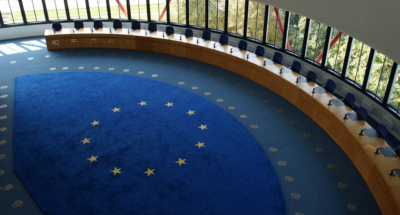
AI and the hidden climate cost of ‘dark data’
Training and fine-tuning AI models requires troves of data, but storing and processing that data is financially and environmentally costly. Here are three ways to address the problem....
Audio available

by Natalia Olynec Published 23 December 2022 in Sustainability • 7 min read
COP15 adopted a vision and roadmap for the conservation and management of biodiversity for the next decade. This post-2020 Global Biodiversity Framework will set the agenda for action on nature as part of broader sustainability efforts, as biodiversity conservation is increasingly being recognized as an essential part of sustainable development.
Business leaders would be well advised to pay attention. “The message to the private sector is clear: businesses around the world and from all sectors will need to take large-scale action now to halt and reverse nature loss by 2030,” said Unilever CEO Alan Jope.
The agreement includes measures to halt and reverse biodiversity loss by 2030, reforms of environmentally harmful subsidies and, most significantly, requirements for businesses to disclose their nature-related risks, dependencies, and impacts.
“The Global Biodiversity Framework is a wake-up call for businesses and financial institutions. Those not already assessing and disclosing their risks, impacts, and dependencies will need to get ready,” said Eva Zabey, Executive Director of the Business for Nature coalition.
While business leaders are less familiar with talks on nature than global negotiations on climate, such as the recent COP27 in Egypt, the Montreal biodiversity framework is being seen as the equivalent of the Paris Agreement for climate action.
And the topic is of similar significance to companies. Biodiversity is an important source of raw materials, food, medicine, and other resources that are used by businesses in many different industries. The loss of biodiversity, therefore, can have serious consequences for the availability and quality of these resources, and could impact a company’s operations and bottom line.
The key element of the Global Biodiversity Framework for businesses is Target 15, which requires governments to ensure that large companies and financial institutions regularly monitor, assess, and transparently disclose their risks, dependencies, and impacts on biodiversity.
The move has the backing of firms leading in sustainable business models.
“We support an ambitious goal on nature and the Global Biodiversity Framework, as well as push governments to make assessment and disclosure on nature mandatory for business,” said Annette Stube, Executive Vice President, Sustainability, at Stora Enso, a leading provider of renewable products in packaging, biomaterials, wooden construction, and paper – and one of the largest private forest owners in the world. The reporting requirement will help simplify the nature agenda, guide investment decisions, and ultimately provide direction for all, including business, she said.

EU negotiator Arthur Campredon said the deal means that every country that is part of the UN Convention on Biological Diversity will have to set up an assessment and disclosure framework for companies and financial institutions related to risks, impacts, and dependencies on biodiversity.
“Businesses have been calling for a ‘Paris moment’ for nature. Today, governments have agreed to require large companies to assess and disclose their impacts and, in doing so, are more explicit about what they expect from business on nature than the Paris Agreement did on climate,” Business for Nature commented.
There was some disappointment that the language on disclosures was watered down slightly during the negotiations, with a proposal to make them “mandatory” not included in the final agreement and a target to reduce negative impacts by half also removed from the text. But the agreement still sends a powerful signal to the global business community that the status quo is over, and that they need to start assessing and disclosing their interactions with nature and biodiversity, according to Business for Nature.
A lack of data currently means businesses are making decisions that are inefficient, ineffective, and in some cases damaging to shareholder value, so they will benefit from this process. “Without this information, we are flying blind into extinction,” said Zabey.
Investors are also in favor of measures that enable them to contribute to efforts to preserve, restore, and ensure the sustainable use of the world’s natural capital and vital ecosystem services.
Some 126 financial institutions managing more than €18.8trn of assets have already signed the Finance for Biodiversity Pledge, which commits them to protecting and restoring biodiversity through their finance activities and investments.
And during COP15, a group of international investment firms launched the Nature Action 100 initiative aimed at driving action on nature and biodiversity loss by companies that they have stakes in. Andrew Niebler, Co-founder of Karner Blue Capital, one of the signatories, said Nature Action 100 was conceived as an investor-led initiative to bring about a paradigm shift in the relationship between business and nature.
Environmental disclosure platform CDP says that disclosures on nature impacts and dependencies will help investors to understand the biodiversity-related risks and opportunities of their portfolios and redirect capital toward sustainable activities. “Ultimately, sunlight is the best disinfectant. Enhanced disclosures enable us to allocate capital in a way that can help protect our clients from risk, while contributing towards a better future for society and the planet,” said Jane Ambachtsheer, Global Head of Sustainability at BNP Paribas Asset Management.
In addition to the new UN agreement, legislation in some parts of the world is putting pressure on businesses and financial institutions to protect nature. The EU recently reached agreement on a law aimed at preventing imports of products linked to deforestation, for example. Companies will have to show that their supply chains are not contributing to the destruction of forests before they can sell coffee, beef, soy, and other commodities into the EU, with failure to comply potentially resulting in fines of up to 4% of a company’s turnover in an EU member state.
The combination of these external forces means that businesses will have to think much more about their interactions with their natural environment and how they can help to halt or reverse nature loss.
But they will be starting from a very low base. The World Benchmarking Alliance recently assessed 400 of the world’s largest companies’ commitments to protect nature and discovered that only 5% of these have carried out a science-based assessment looking at how their operations and business model have an impact on nature and biodiversity. And 97% of companies have yet to commit to a trajectory aimed at reversing nature loss by 2030.
And when companies do make commitments on nature, these do not necessarily translate into tangible actions. CDP says that while 31% of the 7,700 companies it surveyed in 2022 have made a public commitment to support biodiversity or endorsed biodiversity-related initiatives, with another 25% planning to do so within the next two years, 55% have not taken actions to progress their biodiversity-related commitments in the last year, and 70% do not assess the impact of their value chain on biodiversity.
Perhaps for obvious reasons, companies’ commitments and initiatives on nature are lagging well behind what they are doing on climate change. A McKinsey review of Fortune Global 500 companies found that although 83% of firms have climate-related targets, only 25% have set targets for freshwater consumption, 20% for addressing chemical and plastic pollution, and 9% to address forest and seabed loss. And while 18,600 companies reported climate data through CDP this year, only 1,000 reported data on forests and 4,000 on water security.
Yet action to protect nature will play an essential part in limiting climate change too, with COP27 emphasizing the importance of protecting, conserving, and restoring nature and ecosystems as a means of effective climate action.
A recent report from WWF describes nature as the climate’s “secret ally”. It shows that 54% of the world’s CO2 emissions have been absorbed by natural systems over the past 10 years, slowing global warming. But natural systems are being pushed beyond their limits and it will not be possible to halt climate change if nature loss continues unabated, it says.
Now that they are required to contribute to the solution, businesses will need to move quickly to build capabilities in biodiversity mapping and reporting and integrate their impact on nature into sustainable business models.

Chief Sustainability Officer at IMD
Natalia is the Chief Sustainability Officer at IMD. She designs and implements sustainability strategy, develops executive education programs and advisory, publishes research, builds cross-sector partnerships, and communicates IMD’s ambitions and progress. The Center for Sustainable and Inclusive Business, co-led by Olynec, aims to support leaders and companies to take steps towards a more sustainable and inclusive business world by harnessing IMD’s knowledge and expertise in the area and offering tools to help them deliver systemic, innovative, and impactful responses.

22 April 2024 • by José Parra-Moyano, Christine Legner, Konrad Schulte in Sustainability
Training and fine-tuning AI models requires troves of data, but storing and processing that data is financially and environmentally costly. Here are three ways to address the problem....
 Audio available
Audio available
11 April 2024 • by Knut Haanaes, Francisco Szekely in Sustainability
The link between missed carbon emissions targets and human rights was made this week as a group of Swiss women won a landmark case against their government. What does this mean for...

10 April 2024 • by Tomoko Yokoi in Sustainability
Criticisms of artificial intelligence’s impact on sustainability are justified, says IMD’s Tomoko Yokoi, but there are important steps that technology companies can take to address the problem ...

28 March 2024 • by Dovev Lavie in Sustainability
Introducing a platform-based economic system that promotes prosocial behavior can help society overcome its greatest challenges....
 Audio available
Audio availableExplore first person business intelligence from top minds curated for a global executive audience